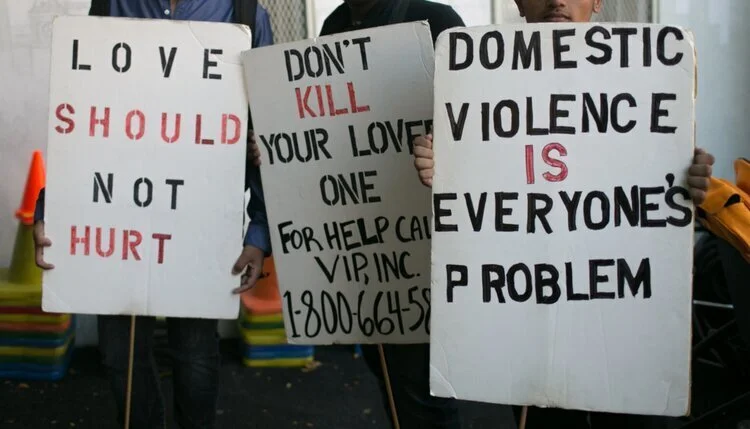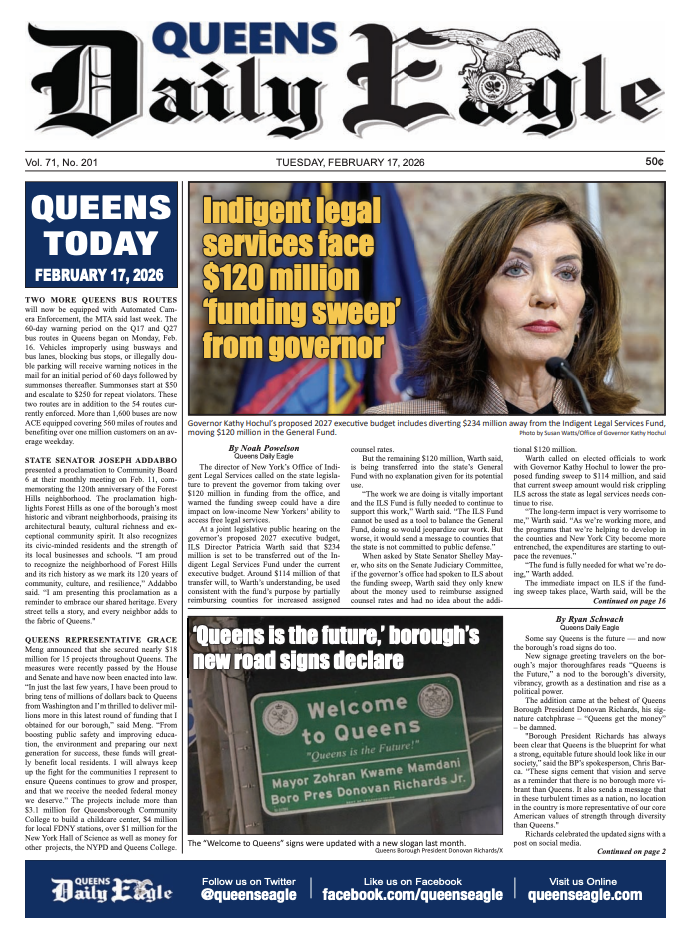How to recognize intimate partner violence
/PHOTO BY WILLIAM ALATRISTE/CITY COUNCIL
By The Mayor’s Office to End Domestic and Gender-Based Violence
June of each year is PRIDE month, dedicated to celebrating the diversity of sexual orientation and gender identity. No two individuals are the same in this regard. Expression of sexual orientation and/or gender identity, to the extent that individuals choose to express it can have tremendous positive impacts and cause real challenges for individuals as well, unfortunately.
This is especially true when it comes to domestic violence, a widespread Global Health crisis that does not discriminate and can disproportionately affect those who are vulnerable and marginalized. It is vital to recognize that those who identify as LGBTQIA+ can often be impacted more adversely than those who do not. In fact, according to the National Intimate Partner and Sexual Violence Survey, 43.8 percent of lesbian and 61.1 percent of bisexual women have experienced rape, physical violence, and/or stalking by an intimate partner at some point in their lifetime, as opposed to 35 percent of heterosexual women and 26 percent of gay men and 37.3 percent of bisexual men have experienced rape, physical violence, and/or stalking by an intimate partner in their lifetime compared to 29 percent of heterosexual men. When intimate abuse happens, LGBTQIA+ people are also less likely to reach out for help – the National Coalition Against Domestic Violence reports that only 26 percent of men in same sex relationships called the police after experiencing near-lethal violence, and fewer than 5 percent of LGBTQIA+ survivors of intimate partner violence sought orders of protection.
Some of the challenges faced by LGBTQIA+ survivors of domestic violence are highlighted in a conversation that Dana, a member of the Mayor’s Office to End Domestic and Gender-Based Violence’s Voices Committee, had with a friend of hers, who we will refer to as Alex since he wished to remain anonymous for this article. When Dana asked Alex if he was willing to speak with her, he stated that he didn't even consider himself a survivor of Intimate Partner Violence (IPV) saying, "I honestly did not know I was being abused… this was my first true relationship, and I thought it was normal." Alex said that he had no role models for what a healthy gay relationship looked like, and he never expected that abuse could occur between people of the same sex. Due to his strength and resilience, Alex agreed it was time to look back at his relationship and open up about the abuse he experienced so that he could reach others who may need help.
Dana recalled a day when she had rushed over to Alex’s house, driving from the Bronx to Queens in less than ten minutes, running red lights all the way. Alex’s partner had broken his nose and there was blood all over the house. She remembered having to physically break up the altercation, pulling Alex’s partner off him. When asked about this incident, Alex’s memory was disjointed. He said that he remembered, "chasing his partner down the boulevard with a belt in his hand" and that "he didn't know why he had a belt on him." Fragmented memories like this are common when people have experienced trauma, even if that trauma is in the distant past. Grounding techniques can guide people through their past traumas to feel safe in the present and future. Alex shared that at the time he experienced this severe abuse, nearly 29 years ago, there were very few services for those impacted by IPV, let alone those in LGBTQIA+ relationships. He had to rely on his friends and his community to move on, which he did, eventually, getting married to an amazing man who he has been with for over 27 years. Alex moved on in a way that embodies the mentality of a true warrior and survivor.
Alex’s experience demonstrates how myths and misinformation about IPV in the LGBTQIA+ community can be very stigmatizing and cause serious harm to people experiencing abuse. If we want to be better allies and increase safety for LGBTQIA+ communities, we need to deliberately work to invalidate common myths like the ones below:
Domestic and Gender-Based Violence: MYTHS & FACTS
Myth: Domestic violence is mainly a 'straight' issue and does not often occur in LGBTQIA+ relationships. Fact: Although many people believe that only straight women can be victims of domestic violence, domestic violence occurs in LGBTQ relationships at similar or higher rates than in the general population.
Myth: Incidents of domestic violence are less severe in LGBTQIA+ relationships than in straight relationships. Fact: The abuse experienced by LGBTQ individuals can be equally or more damaging. Studies show that gay men and bisexual women are more likely to experience severe physical violence than their straight counterparts, including being beaten, burned, or choked.
Myth: Psychological violence, which includes name-calling, insulting, humiliating, or attempting to monitor, control, or threaten a partner, is not as serious as physical or sexual violence. Truth: Psychological violence can be an equally devastating form of abuse. In particular threats to out another person's sexual orientation or gender identity as a means of control are unique to the LGBTQIA+ community.
Myth: The more masculine, bigger, and/or stronger partner is typically the abuser. Truth: Domestic violence does not discriminate; it can impact or be perpetrated by any person regardless of their physical or personal attributes (e.g., size, gender expression, or age). However, gender plays a significant role in perceiving and reporting instances of IPV. Many people “gender” the violence in LGBTQIA+ relationships, sometimes incorrectly assuming that the abusive partner in a relationship is always the more masculine-presenting partner.
Myth: It is easier for LGBTQIA+ victims to leave abusive relationships than their straight and/or married counterparts. Truth: LGBTQIA+ relationships are just as legitimate and meaningful as straight relationships. Regardless of the gender identity, sexual orientation, or marital status of two people in a relationship, leaving an abusive partner is often a difficult and painful process. Being in an LGBTQIA+ relationship does not diminish that pain.
While Dana’s experiences with IPV took place in the context of a straight relationship and Alex’s did not, the impacts of IPV on both survivors are similar. They both noted a need to be in control of their home environments and surroundings in order to feel safe. They each had a tendency to self-isolate when feeling unhealthy. And they both cited their faith as a source of resilience and strength.
As PRIDE month 2021 comes to an end, let us all try to reflect on this past year with an understanding that the COVID-19 global health pandemic has increased incidents of domestic violence, due in part to restrictions imposed with the intent to mitigate COVID-19. Having less autonomy to leave our homes freely in addition to society operating in a much more limited capacity has led to significant emotional, mental and physical impacts for survivors of IPV, especially LGBTQIA+ survivors who were already marginalized. This PRIDE month also marks the fifth anniversary of the bigoted mass shooting at the gay nightclub Pulse in Orlando, Florida. This heinous act of hate reminds us of the history of oppression faced by the LGBTQIA+ community. Although we have come a very long way regarding our understanding of and ability to serve victims of abuse, including those identifying as LGBTQIA+, we still have a long way to go.
The New York City Anti-Violence Project has a 24/7/365 hotline for the LGBTQIA+ community and friends and those who support the community regarding any type of violence, in addition to those who lost someone to violence. They can be reached at 212-714-1141.
ENDGBV is connecting survivors to its community-based organizations (CBO) and partner agencies for vital services including immediate safety planning, shelter assistance, legal consultations, counseling sessions, case management sessions, mental health counseling, and more. Survivors can reach the Centers directly Monday to Friday, 9 a.m. to 5 p.m. on the FJC phone lines Queens: 1-718-575-4545. For evenings and weekends, survivors can call NYC’s 24-hour Domestic Violence Hotline (1-800-621-4673), to access assistance with immediate safety planning, shelter assistance and community resources. Call 911 for emergencies.




